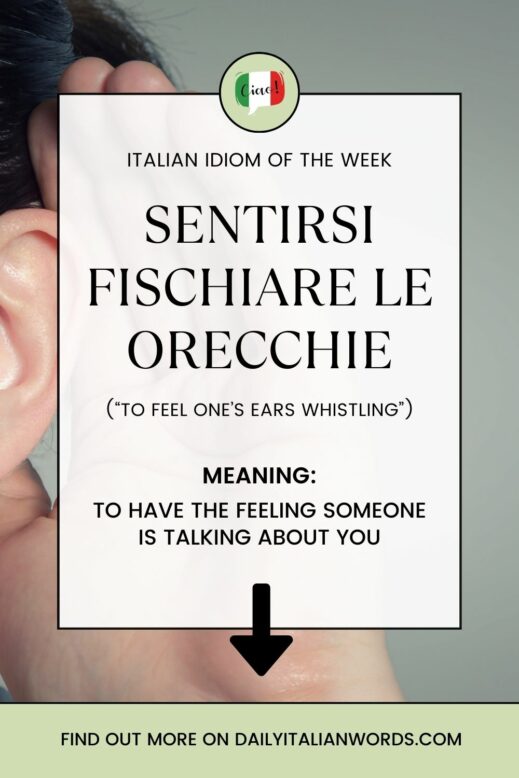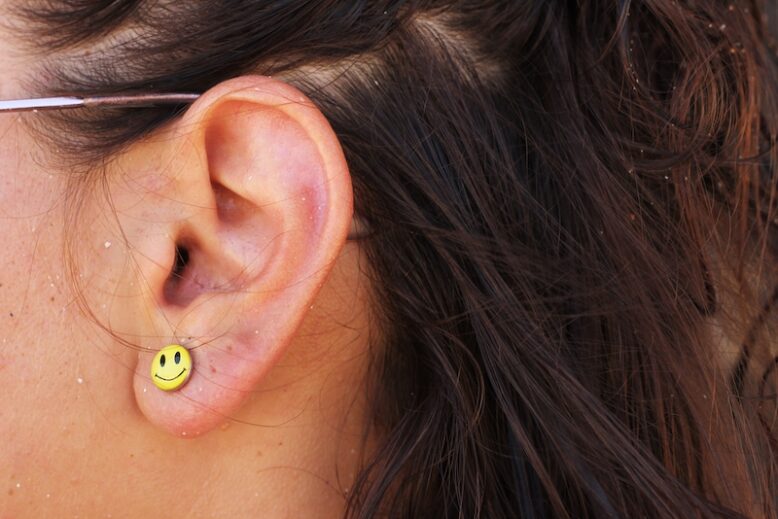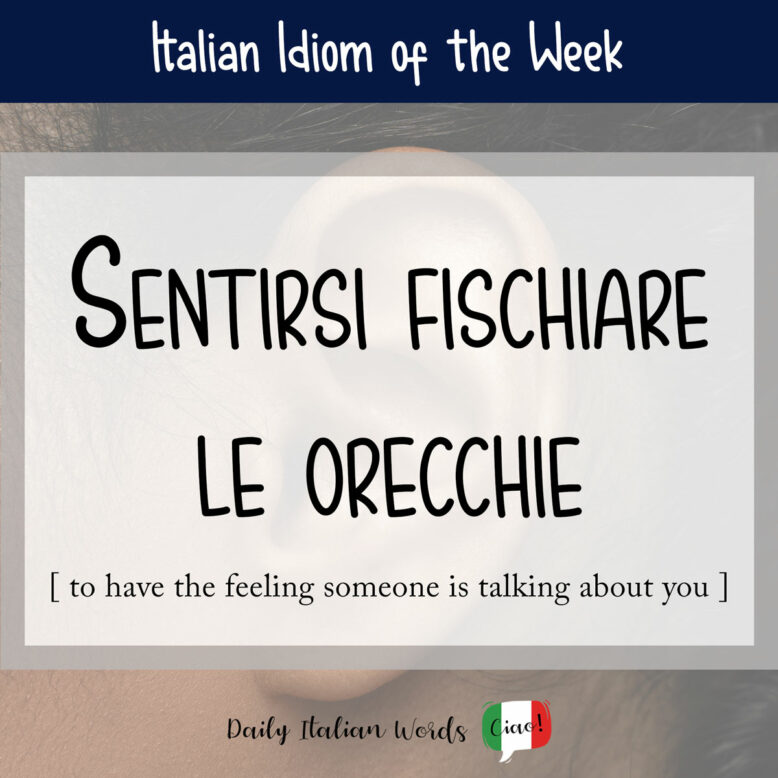In Italian, fischiare le orecchie literally means “to whistle in the ears,” and it refers to the persistent ringing or buzzing sound in one’s ears, often associated with tinnitus.
Mi fischiano le orecchie!
My ears are ringing / buzzing!
However, this expression, when preceded by the verb sentirsi (to feel), can also be used figuratively to describe the unsettling feeling that other people are talking about you, or someone else. In English, the equivalent expression is “your ears are burning.”
Sentirsi fischiare le orecchie
to have the feeling someone is talking about you

In Italian, the two ears, when considered as a pair rather than distinct organs, are usually referred to as le orecchie, using the irregular feminine plural form. When talking about the single organ, the masculine orecchio is more common.
When it comes to idioms, it is possible to find multiple versions with either the feminine or masculine. Here are a few other examples:
- essere tutt’orecchi (masculine plural) = to be all ears
- anche i muri hanno orecchi / le orecchie (masculine / feminine plural) = these walls have ears
- essere duri d’orecchi / d’orecchio (masculine plural / singular) = to be hard of hearing
To find out more about the difference between these two plural forms, be sure to check out our article about the word orecchio.

The ancient belief that one’s ears can ring or burn when being talked about dates back to at least Roman times, with Pliny the Elder mentioning it in his Natural History (published between AD 77–79). According to the Corriere Dictionary, there is even a belief that the nature of the conversation, whether positive or negative, can be discerned based on whether the affected ear is the left or right one.

Heather Broster is a graduate with honours in linguistics from the University of Western Ontario. She is an aspiring polyglot, proficient in English and Italian, as well as Japanese, Welsh, and French to varying degrees of fluency. Originally from Toronto, Heather has resided in various countries, notably Italy for a period of six years. Her primary focus lies in the fields of language acquisition, education, and bilingual instruction.


